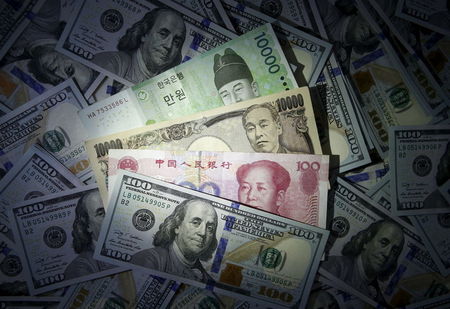
UBS issued a report on the current currency situation, maintaining its key views on G10 currencies and forecasting further strengthening of the US dollar. The firm stressed that while markets are reducing the extent of policy differences built into prices, there is no compelling reason to change its forecasts.
Equities and risk assets continue to perform well with low and declining near-term implied volatilities, suggesting the dollar should hold its ground over time thanks to continued yield support.
The firm noted that the dollar appears to be underperforming early bets, especially after the move in yields following the CPI largely recovered while the DXY reversed less than 50% of last week’s sell-off.
UBS noted that recent comments from Federal Reserve speakers do not indicate a policy change based on April inflation data, which could mean the Federal Open Market Committee (FOMC) may not cut rates in September as the market currently expects.
UBS also discussed the viability of carry trades as a means of diversifying away from pure USD exposure, recommending avoiding outright short sales of the pair even though they are within what UBS considers a “sell zone.” Instead, the firm focuses on Swiss franc (CHF) crosses such as and .
UBS expects the market has not fully priced in two more rate cuts by the Swiss National Bank (SNB), which they expect before the end of 2024.
The broker commented on Japanese government bond (JGB) yields approaching 1.00% for the first time since 2012. UBS remains skeptical about a significant aggressive move by the Bank of Japan (BOJ), maintaining its target at 160.00. by the end of the year and the price falling to 152.00 as a buying opportunity.
Finally, UBS discussed the April Canadian Consumer Price Index report, which supports the view of a potential rate cut by the Bank of Canada (BoC) in June – a view that has not been fully priced in by the rates market. The firm is sticking to its bullish outlook by keeping the vanilla call option priced at 1.38.
UBS suggests that a reduction in Canadian dollar short positions and a reduction in implied volatility could increase the appeal of expressing Canada’s dovish views in the foreign exchange market.
This article was created with the help of AI and reviewed by an editor. For more information please see our Terms and Conditions.


